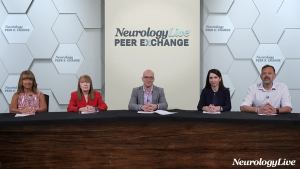Articles by Enrique Alvarez, MD, PhD

Experts emphasize that long-term monitoring after stepping down from high-efficacy multiple sclerosis (MS) therapies requires individualized clinical, MRI, and laboratory assessments to promptly detect disease activity or complications, alongside clear patient communication about goals and risks; looking forward, novel treatments and improved biomarkers promise to enhance personalized, safer management strategies.

Experts discuss the ongoing phase 4 COAST trial evaluating ozanimod as a step-down therapy for patients with stable multiple sclerosis (MS) on anti-CD20 treatments, highlighting careful patient selection, timing of initiation to balance disease control with immunosuppression risks, and the need for individualized decisions pending trial results.

Experts discuss how de-escalation in multiple sclerosis (MS) balances maintaining disease control with reducing treatment burden by transitioning from fumarates to options such as cladribine or emerging Bruton tyrosine kinase (BTK) inhibitors, aiming for safer, more personalized long-term care.

Experts discuss extended interval dosing (EID) of anti-CD20 therapies in multiple sclerosis (MS) as a promising strategy to maintain disease control while potentially reducing immunosuppression-related risks, highlighting early positive clinical experiences and the importance of careful patient selection and ongoing monitoring.

Experts discuss the rationale and patient-specific considerations for de-escalating therapy in multiple sclerosis (MS), particularly for those on anti-CD20 treatments, emphasizing the balance between maintaining disease stability and minimizing long-term risks such as infections and treatment burden through tailored adjustments based on clinical, radiological, and individual factors.

Experts discuss long-term management strategies for stable multiple sclerosis, including continuing current therapy, careful treatment discontinuation, de-escalation, and switching therapies, all tailored to individual patient needs to balance disease control with minimizing risks and treatment burden.

Experts discuss the infection risks associated with long-term anti-CD20 therapies in multiple sclerosis, emphasizing the need for careful monitoring, patient-specific risk assessment, and tailored de-escalation strategies to balance effective disease control with minimizing treatment-related adverse effects.

Experts discuss the transformative impact of B-cell–directed and high-efficacy disease-modifying therapies in managing multiple sclerosis, emphasizing early initiation to prevent disability while balancing safety, patient preferences, and long-term treatment considerations to optimize outcomes.
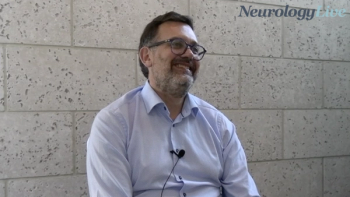
The professor of neurology at University of Colorado School of Medicine talked about the challenges of telehealth and device-based data collection in clinical practice. [WATCH TIME: 4 minutes]

The professor of neurology at University of Colorado School of Medicine discussed the evolving landscape of MS treatment, highlighting the role of personalized medicine and biomarker-driven decision-making. [WATCH TIME: 5 minutes]
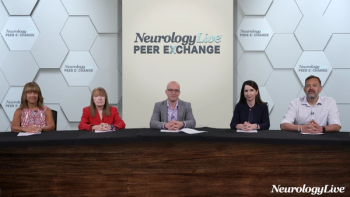
Conversations With Patients About Mild/Moderate Multiple Sclerosis
ByStephen Krieger, MD,Heidi Crayton, MD,Jacqueline Nicholas, MD, MPH,Patricia K. Coyle, MD,Enrique Alvarez, MD, PhD The expert panel examines early multiple sclerosis (MS) and patients with mild MS even in later stages of the disease, emphasizing crucial information to convey to patients throughout their journey; faculty also explore cases where disease-modifying therapies (DMTs) may not be utilized.

Mild/Moderate Multiple Sclerosis in Patients of Different Races and Ethnicities
ByStephen Krieger, MD,Heidi Crayton, MD,Jacqueline Nicholas, MD, MPH,Patricia K. Coyle, MD,Enrique Alvarez, MD, PhD Multiple sclerosis (MS) specialists discuss their observations regarding variations in MS presentation and progression among patients of Different Races and Ethnicities

Defining Mild Multiple Sclerosis
ByStephen Krieger, MD,Heidi Crayton, MD,Jacqueline Nicholas, MD, MPH,Patricia K. Coyle, MD,Enrique Alvarez, MD, PhD The panelists explore diagnostic methods for differentiating between mild and moderate multiple sclerosis (MS) while also examining prognostic factors, the role of imaging, and the concept of brain reserve in mild MS cases.

Presentation of Clinically Isolated Syndrome/First Attack of Multiple Sclerosis
ByStephen Krieger, MD,Heidi Crayton, MD,Jacqueline Nicholas, MD, MPH,Patricia K. Coyle, MD,Enrique Alvarez, MD, PhD Key opinion leaders provide insights into the prevalence and incidence of clinically isolated syndrome (CIS) within their clinical practice.
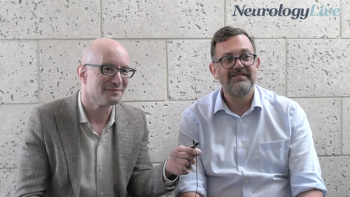
The associate professor of neurology at Icahn School of Medicine at Mount Sinai and associate professor of neurology at University of Colorado School of Medicine talked about the potential of redefining relapses in the landscape of clinical trials for multiple sclerosis. [WATCH TIME: 3 minutes]

The associate professor of neurology at the University of Colorado School of Medicine talked about promising developments in multiple sclerosis treatment strategies for 2024. [WATCH TIME: 6 minutes]

The associate professor of neurology at the University of Colorado School of Medicine discussed results of phase 3 studies assessing therapeutics on the impact of fatigue experienced by patients with multiple sclerosis. [WATCH TIME: 5 minutes]

Key opinion leaders in neurology, Lawrence Steinman, MD and Enrique Alvarez, MD, PhD, reflect on future developments in the management of multiple sclerosis and share key advice for community physicians.

Thought leaders in neurology consider the role of BTK inhibitors such as evobrutinib and review the potential impact on patients with progressive multiple sclerosis.

Experts in the management of multiple sclerosis provide key insights into the use of ublituximab in multiple sclerosis and review results of the ULTIMATE I and II trials from the AAN 2021 Annual Meeting.

Enrique Alvarez, MD, PhD reviews factors to consider when monitoring response to treatment, and Lawrence Steinman, MD comments on patient- and disease-related factors that may impact therapeutic sequencing.

Two experts in multiple sclerosis share insights on the shared decision-making process when selecting a high efficacy therapy and emphasize the importance of disease characteristics and patient preference.

Key opinion leaders in neurology, Lawrence Steinman, MD and Enrique Alvarez, MD, PhD examine some advantages associated with beginning patients on higher-efficacy therapies for relapsing/remitting multiple sclerosis.
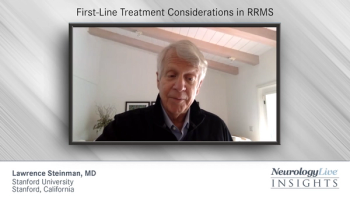
Experts in the management of relapsing/remitting multiple sclerosis provide key insights on the importance of early diagnosis and treatment as well as what factors to consider when selecting therapy.

Lawrence Steinman, MD discusses the role of MRI and the McDonald Criteria for the diagnosis of multiple sclerosis, and Enrique Alvarez, MD, PhD defines key differences in the presentation and prevalence of its clinical subtypes.















